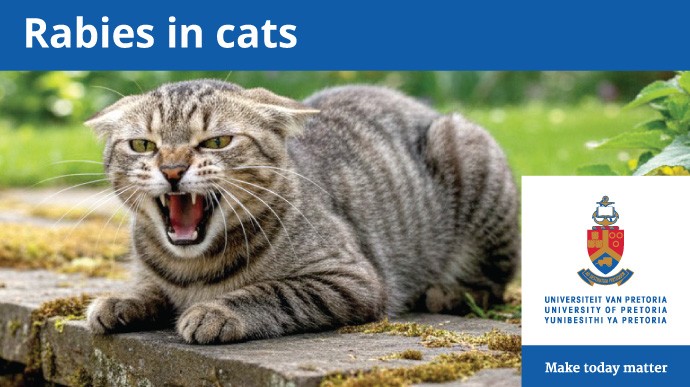 Story
Story
This edition is curated around the concept of One Health, in which the University of Pretoria plays a leading role globally, and is based on our research expertise in the various disciplines across healthcare for people, the environment and animals.
 Story
Story
A new study by researchers at the University of Pretoria (UP) and the University of Adelaide in Australia has revealed the real function of the giraffe’s long legs ¬– to reduce blood pressure.
 Infographic
Infographic
This infographic explains the long and short of a giraffe's legs. By having long legs, the giraffe is able to reduce the pressure it needs to get blood to its brain, thereby saving the animal energy.
 Photo
Photo
Using a digital creation known as an “elaffe” – a half-giraffe, half-eland chimera – researchers were able to demonstrate how blood pressure is reduced and how much energy is saved by a giraffe.
 Story
Story
Many associate human rabies infections with infected domestic dogs. Yet, like most mammals, cats can also pass this deadly viral disease on to people. That is why pet owners should ensure that their feline pets receive regular rabies vaccinations, according to Professor Claude Sabeta of the Department of Veterinary Tropical Diseases in the Faculty of Veterinary Science at the University of...
 Infographic
Infographic
Infected cats excrete the rabies virus in their saliva for several days before symptoms kick in. A bite or scratch from a cat can leave deep puncture wounds, through which the virus can enter a person’s bloodstream. Learn more about other possible symptoms of rabies in cats and what to do if you suspect your cat may be infected.
Copyright © University of Pretoria 2025. All rights reserved.
Get Social With Us
Download the UP Mobile App